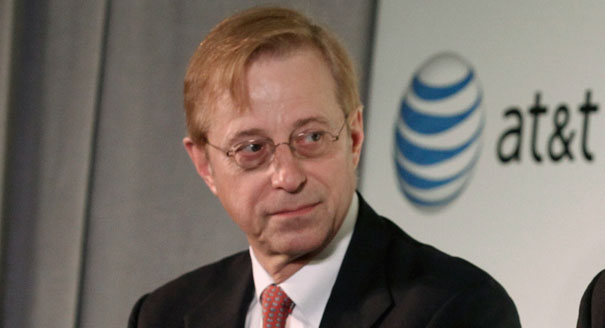 This week, the House Energy and Commerce Committee held a hearing on the issue of how to fully implement our country’s shift to communications networks based entirely on Internet Protocol (IP). For most Americans, IP probably sounds like a technical detail they can ignore. But it’s important to note that the way we manage the ongoing move from outdated 20th century technology to a world built around digital broadband networks will help decide whether the United States remains the world economic and innovation leader.
This week, the House Energy and Commerce Committee held a hearing on the issue of how to fully implement our country’s shift to communications networks based entirely on Internet Protocol (IP). For most Americans, IP probably sounds like a technical detail they can ignore. But it’s important to note that the way we manage the ongoing move from outdated 20th century technology to a world built around digital broadband networks will help decide whether the United States remains the world economic and innovation leader.
The transition to an all-broadband infrastructure also may determine whether we can close the already existent digital divide in our country. Personally, I’m excited by the opportunities that come with updated networks. If we do the transition right, every American should have the same chance to enjoy advanced education, high quality health care, and economic opportunities made possible by the Internet – whatever their color or race, where they live, or how much money they have.
Here’s how Jim Cicconi of AT&T, who testified at the hearing this week, put the importance of combining online resources and classroom instruction: “Online learning programs benefit students at every level from elementary school to university and adult education. They level the playing field in education and offer new educational opportunities to anyone with a broadband connection, no matter where they live.” I couldn’t agree more.
That means Latinos and other young students can gain access to advance coursework, including STEM subjects that may not otherwise be available in their schools – especially if they live in districts with limited resources. Because of the digital divide too many young people in our communities may not have the opportunity to dream big. Because of technological handicaps, they start behind and, too often, that means they will stay behind. The IP transition is a chance to change that. Bringing broadband IP networks to every American means that every young Latino student cannot just have the opportunity to dream big, but also to achieve big by being empowered to receive the educational background they need to succeed in math, science, and technology courses in order to fully realize dreams of becoming engineers, doctors, scientific researchers, and technology innovators.
In concrete terms, how and will this occur? Listening to the Committee discussion, some things are clear. It will require smart thinking from regulators at the Federal Communications Commission (FCC), who must create an environment designed for modern technological investment. It also means starting now with IP field tests and trials, as proposed last year by one large carrier and as the Commission did with the transition to digital TV, to identify the challenges that come with change. We need to ensure that everyone’s communication choices are at least as good or better than they are now and that essential public safety services like 911 continue to work with updated technology.
The FCC needs to start this limited trials process immediately so that we finish the job and enable every American to share the benefits of a modernized communications network. We have no time to waste. Our children’s educational and professional futures hang in the balance.
About Jose A. Marquez-Leon, National President-CEO
Jose A. Marquez-Leon is the National President, CEO, and Founder of Latinos in Information Sciences and Technology Association (LISTA). In this role he serves as lead advocate on state and federal issues related to the role of Latinos in the technology sector. He is also charged with coordinating organization-wide strategic planning for LISTA initiatives and is executive director of twelve LISTA Tech Councils nationwide. Since LISTA’s inception the organization has developed programs to take our community from the “schoolroom to the boardroom.” These programs are designed to introduce technology into classrooms, encourage information technology and science professions among young adults, facilitate technology-related professional development through certification training and job-matching programs, leverage online communications for continued collaboration, and recognize Latinos within the IT industry that are making a difference. Click here for a full BIO.
